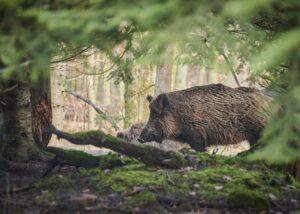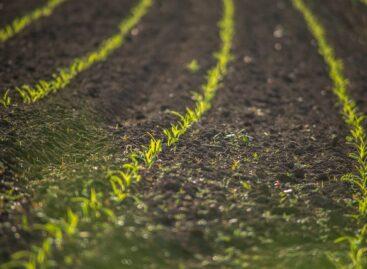Discipline must not be relaxed in the fight against African swine fever
Our country successfully defended itself against African swine fever: more than six years have passed since the appearance of the disease, and the pig sector has been protected from the epidemic. However, the attention of farmers cannot continue to decrease, strict adherence to epidemic prevention measures is still very much needed in the future – draw attention to the National Chamber of Agriculture and the National Food Chain Safety Office.

(Photo: Pixabay)
African swine fever (ASP) has been present in our country for more than six years, but the virus has not spread from wild boar to domestic pigs. All of this is due to the epidemic prevention measures introduced and consistently implemented in recent years, so it is the joint merit of the farmers and the authorities. The successful defense also provided an opportunity for the ASP risk classification of some areas to be more favorable, so trade restrictions were also eased in the given areas – Békés, Jász-Nagykun-Szolnok and Pest counties. Thanks to this, the economic opportunities of local farmers and food businesses have expanded.
However, this does not mean that the danger has passed
ASP is still present in the country’s wild boar population, so disease control discipline is still important. The National Chamber of Agrarian Economy (NAK) and the National Food Chain Safety Office (Nébih) are asking farmers to pay close attention to the regulations and fully comply with them in order to prevent the African swine fever epidemic. Whoever protects his own herd protects the entire domestic pig sector! It is still important that pigs can only be bought from a legal, registered place and transported with a veterinary certificate. NAK and Nébih recommend that farmers seek the advice of their veterinarian before each purchase and follow the regulations! This will continue to ensure the ASP exemption of the domestic pig herd, the profitability of the pig sector and free EU trade.
In the upcoming autumn-winter period, agriculture is characterized by a number of activities that pose a particularly high risk of introducing the ASP virus
One of these is social hunting, as wild boar hunting is mainly concentrated in the autumn months. It is important to find out about the risk classification of the hunting area during wild boar hunting. In the forests of the infected area, only local professional hunters and guides are allowed to drive off the paved road, everyone else must leave their vehicle outside the area. After hunting, you must always clean the car, boots, weapons and clothing. Those taking part in the hunt – whether hunters or drivers – must not go to a yard or farm where domestic pigs are kept for 72 hours under any circumstances!
Hikers, hikers and mushroom pickers should also pay attention to cleaning their clothing
Another important task of autumn in agriculture is the harvesting of corn. Maize is one of the wild boars’ favorite treats, and the tall plants provide them with a safe cover and hiding place, which is why the animals stay in the cornfields in large numbers until the end of the harvest. In the infected area, diseased wild boars can die in large numbers, infecting the crop. Therefore, it is important that the corn harvested in the affected agricultural area – or any other grain intended for pig feed – be rested by the producers for at least 30 days in order to protect the livestock in the backyard, which is also true for the crop that has undergone drying and heat treatment. Power machines working in the fields should not be stored near the pig farm, after the work is finished, it is recommended to clean them of mud and dirt, wash them and disinfect them with a virus-killing agent.
Pig slaughtering plays a strong community-building and cohesive role in rural life
Tradition is important, but the epidemic prevention regulations must not be forgotten here either, since backyard pig slaughter can also pose great risks in the spread of ASP. Planned domestic pig slaughtering in the infected area must be notified in advance to the district office.
NAK
Related news
CBAM causes market disruption
🎧 Hallgasd a cikket: Lejátszás Szünet Folytatás Leállítás Nyelv: Auto…
Read more >Agricultural vocational training also places great emphasis on irrigation development
🎧 Hallgasd a cikket: Lejátszás Szünet Folytatás Leállítás Nyelv: Auto…
Read more >







